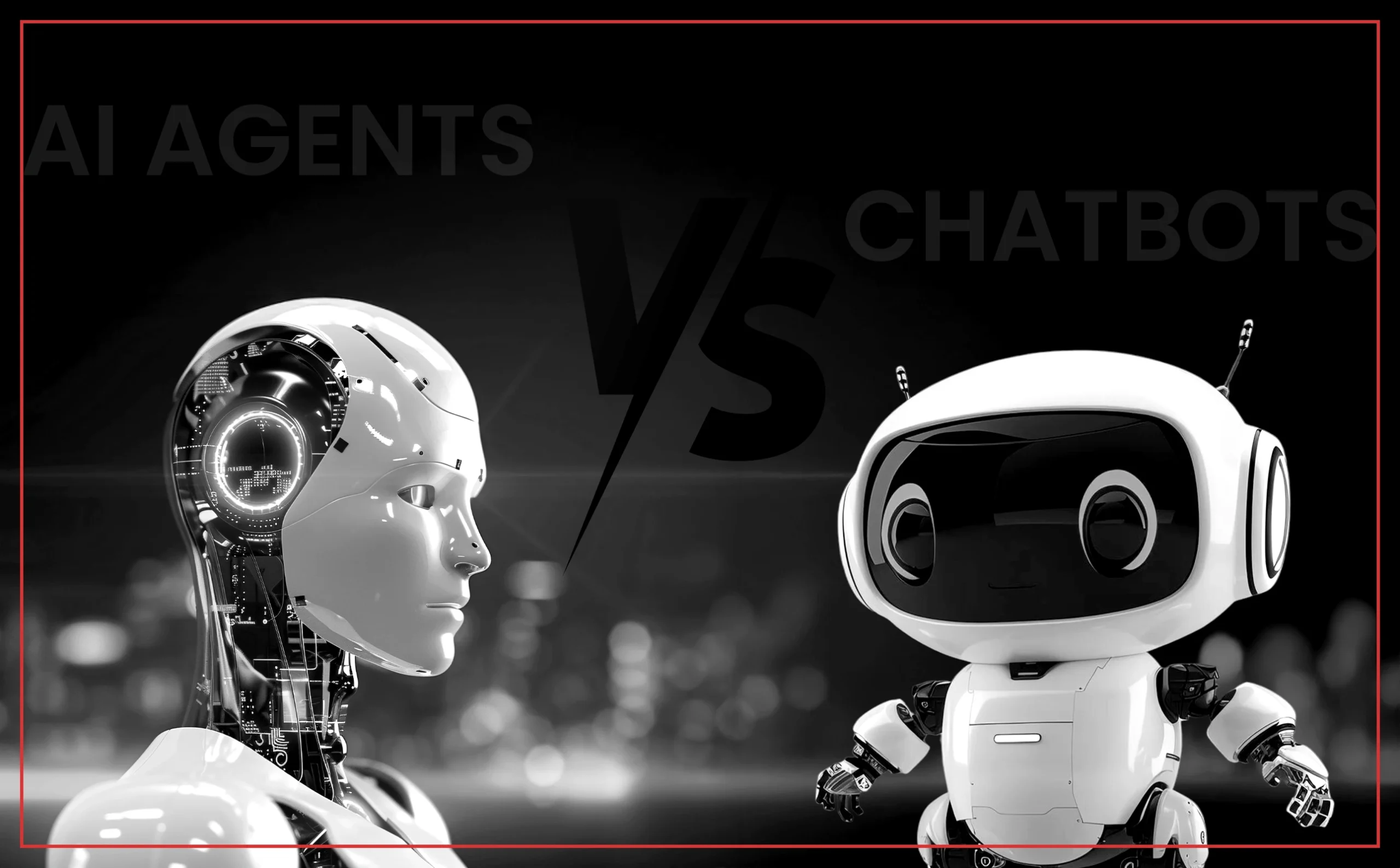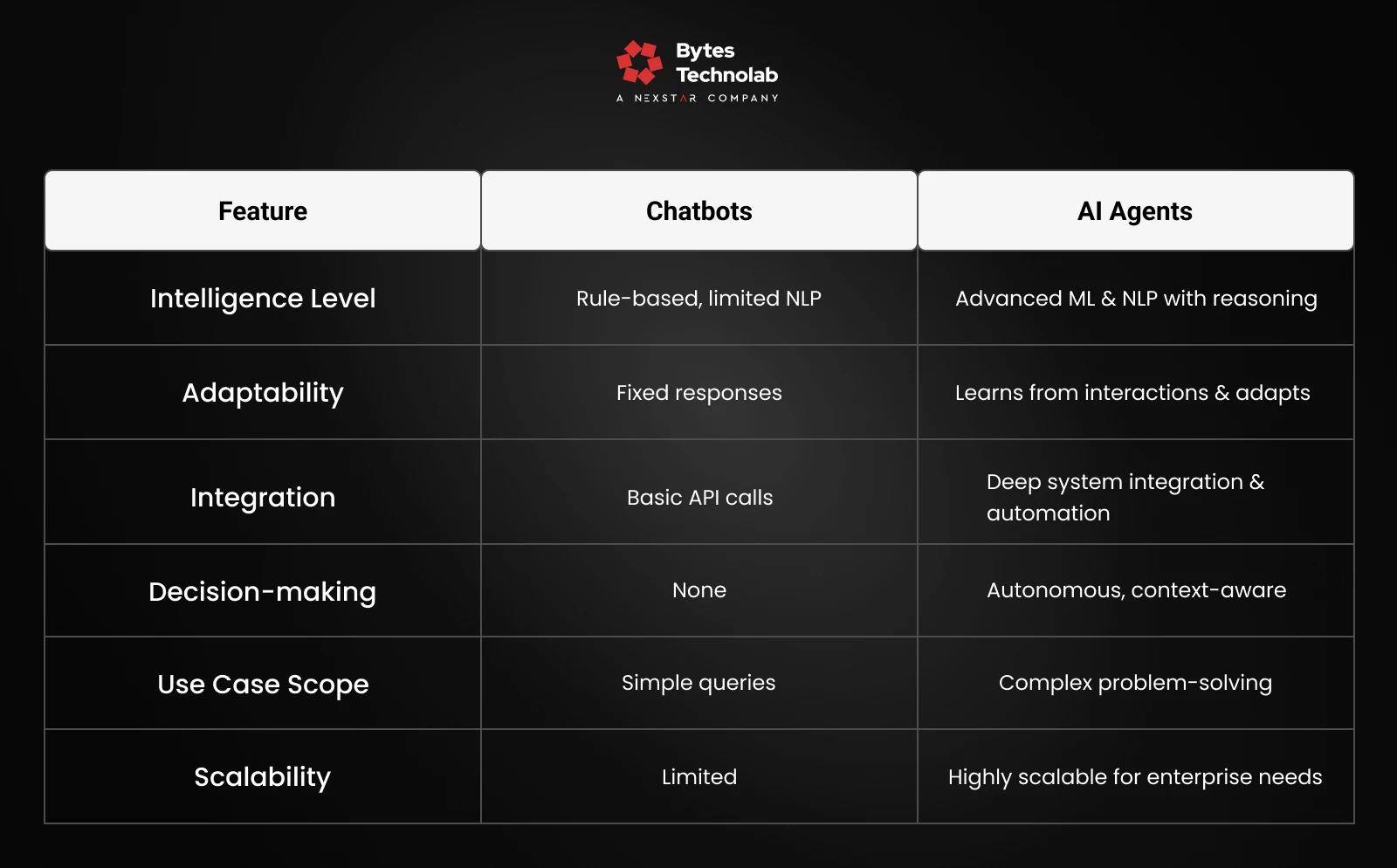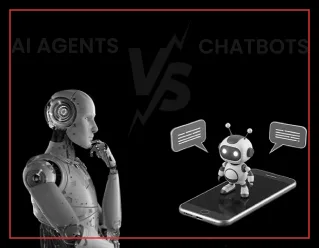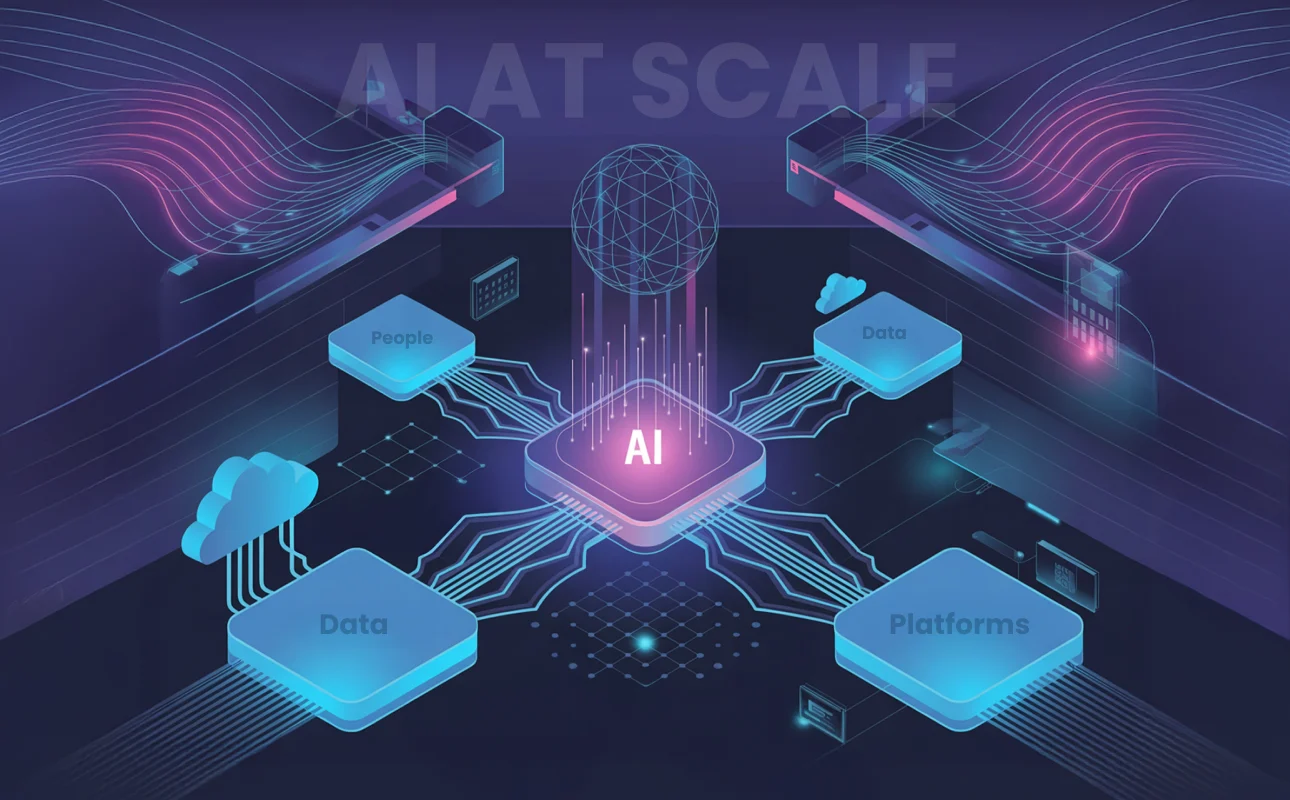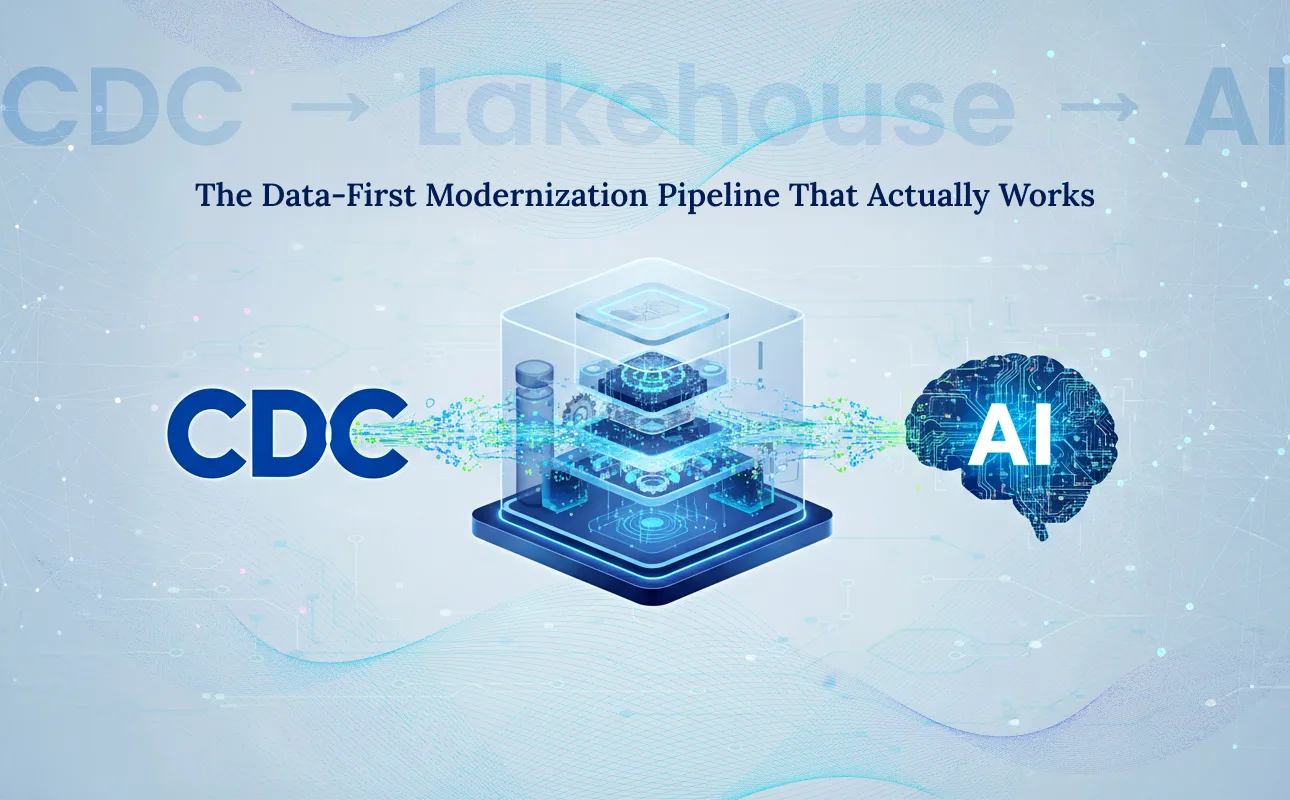Recently, businesses have raced to adopt conversational technology. Many started with chatbots, simple, rule-based tools designed to answer basic questions and automate repetitive tasks. But as the technology landscape evolved, a new player emerged: AI agents. They are smarter, more adaptive, and capable of making decisions that go far beyond pre-programmed scripts.
For many enterprises, the question isn’t “Should we use AI?” anymore. It’s “Which type of AI-powered interaction is right for our business?”
Understanding the difference between AI agents and chatbots is not just a matter of technology; it’s about strategy, efficiency, and the ability to deliver truly personalized customer and operational experiences. While chatbots can still be useful, AI agents are rapidly becoming the go-to choice for companies seeking deeper automation, real-time reasoning, and contextual decision-making.
In this blog, we’ll explore how the two compare, when each is the better choice, and why forward-thinking organizations are partnering with AI agent development companies to stay ahead in a competitive global market.


